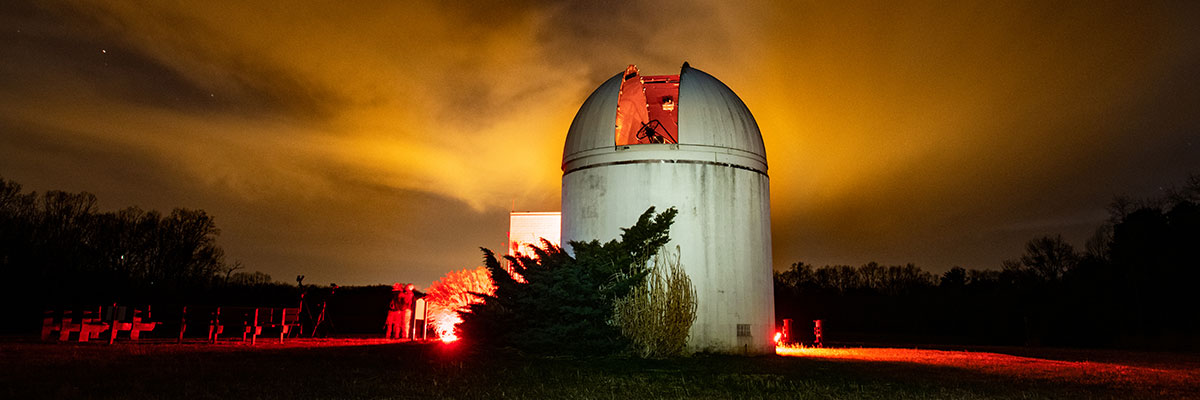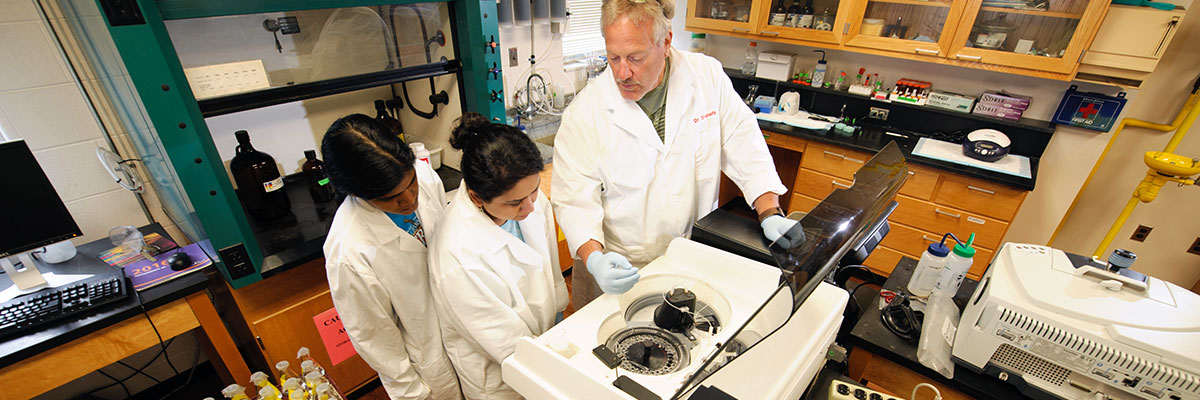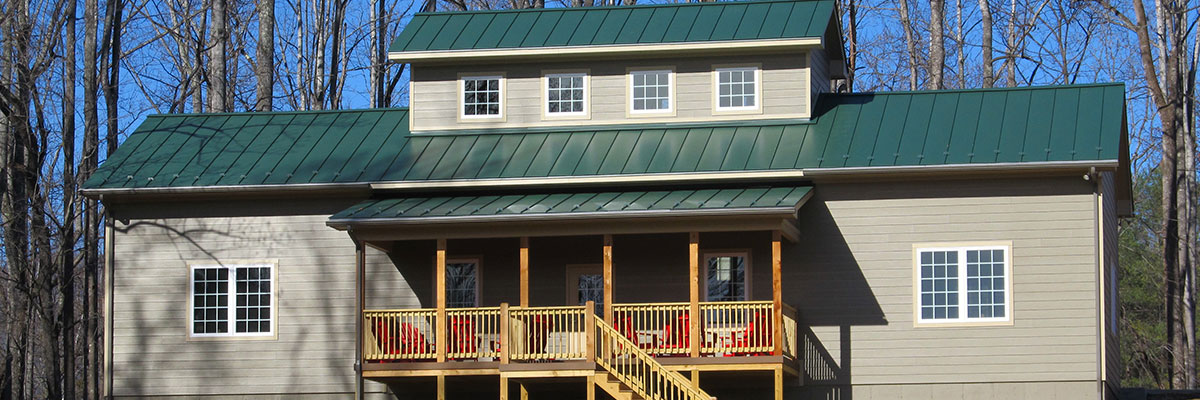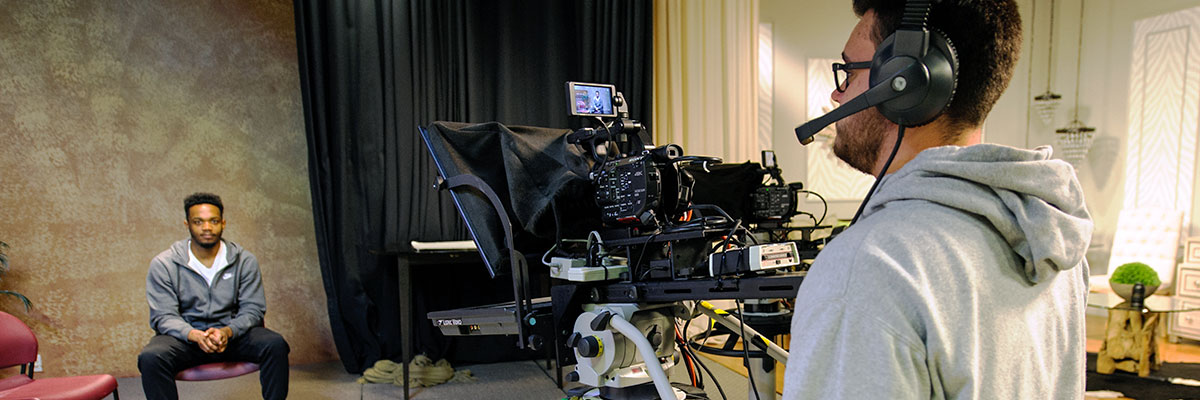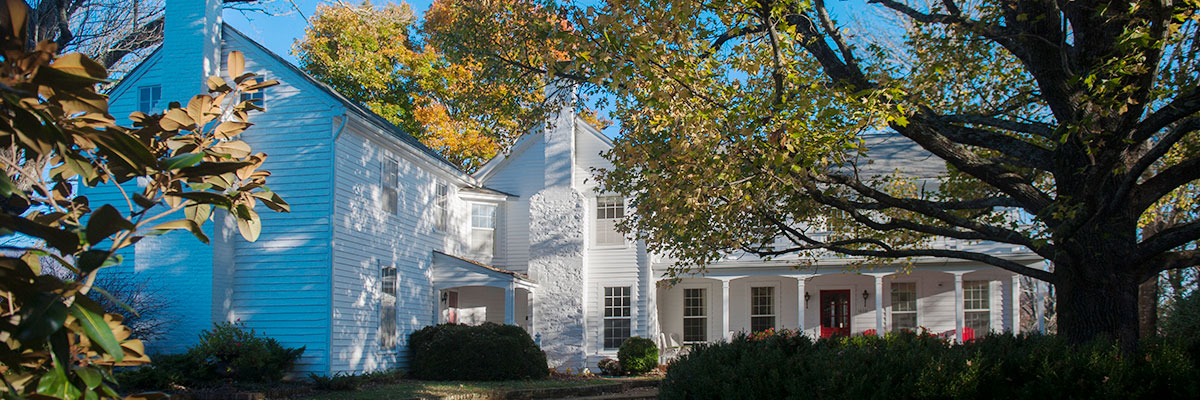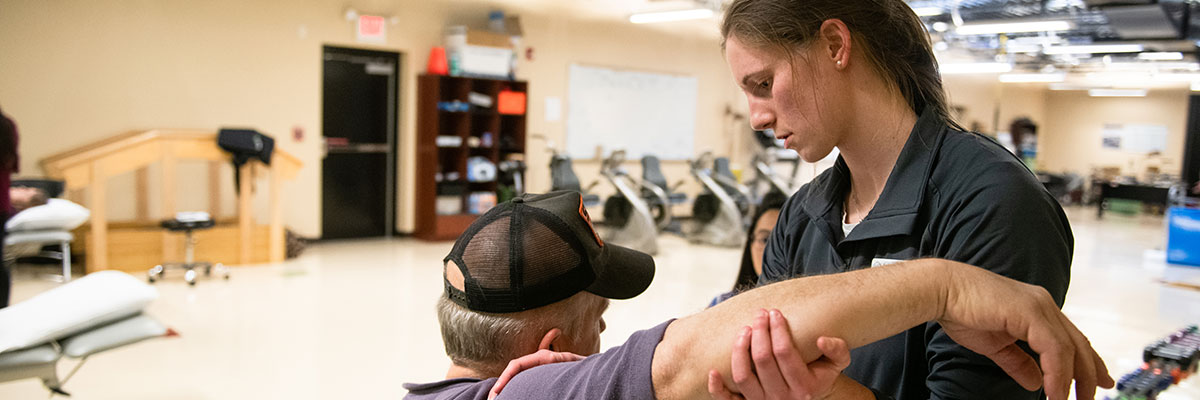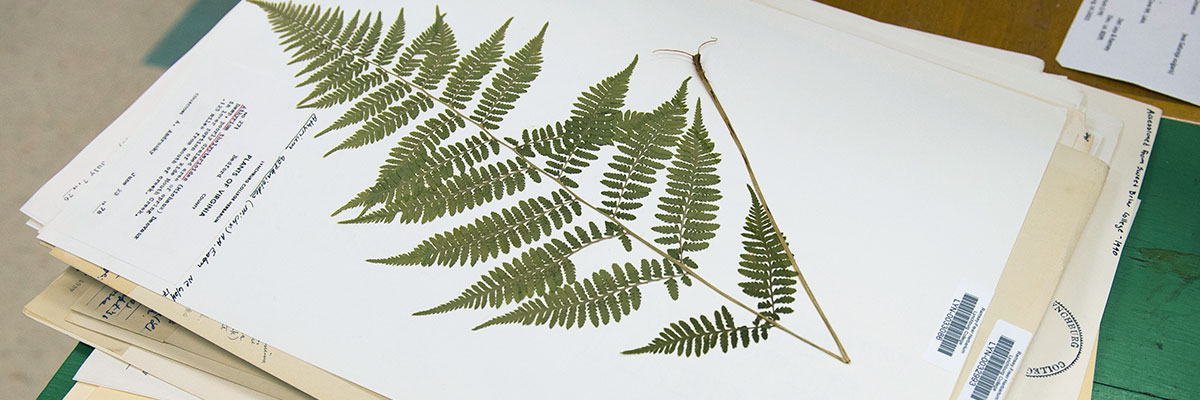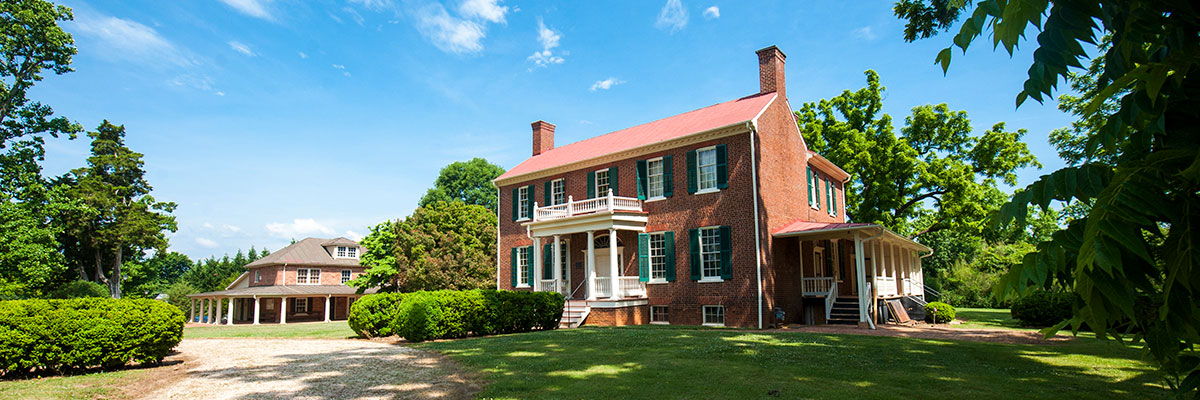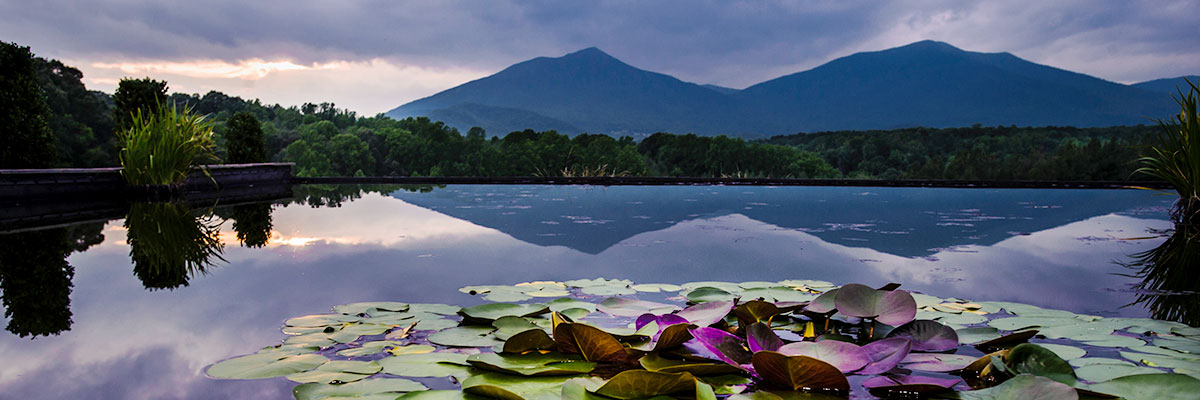Beard Center on Aging at the University of Lynchburg
The Beard Center on Aging at the University of Lynchburg aims to address the needs of older citizens through community education, engagement, and outreach. The Center offers unique opportunities for Lynchburg students to learn immersively through research initiatives, meaningful outreach, educational programs, and professional conferences, seminars, and workshops.
Center for Community Development and Social Justice
The Center for Community Development and Social Justice (CCDSJ) supports sustainable community outreach and advocacy initiatives between the University of Lynchburg and the greater Lynchburg area that focus on social justice issues in the city’s neighborhoods. The center was established in 1996 through an endowment by Rosel H. Schewel ’71 MEd, ’83 EdS, and Elliot S. Schewel.
Center for Economic Education
The Center for Economic Education, a collaborative program with the Virginia Council for Economic Education, promotes economic literacy with a special emphasis on educating and supporting K-12 teachers. Innovative, SOL-compliant economic education resources and training opportunities are provided for teachers to develop students into competent, productive participants in the local and global economies. The center also facilitates economic and financial education workshops for parents.
Center for Family Studies and Educational Advancement
The Center for Family Studies and Educational Advancement offers parenting and family education programs to University of Lynchburg students, private and public schools, and parents throughout Central Virginia. Parents learn positive discipline skills, methods to encourage their children, and enhanced communication skills. The center also provides a variety of special programs of interest to families.
Center for Innovation and Strategic Partnerships
The Center for Innovation and Strategic Partnerships provides support, advising, and infrastructure to all faculty, staff, students, and alumni, allowing perpetual innovation to enhance the student experience at the University. The center assists in navigating the process from concept to creation.
Center for Leadership
The Center for Leadership focuses on developing and sustaining a recommitment to public education. The center provides opportunities for student and community engagement through various initiatives: Lynchburg Together, The Leadership Institute for Neighborhood Engagement, and A Breath of Fresh Air.
-
Lynchburg Tomorrow
Lynchburg Tomorrow is a collaborative effort aimed at creating a thriving city by bringing together a wide range of organizations and citizens and leveraging resources through a collective impact and strength-based model to foster stronger neighborhoods and communities.
Center for Professional Communication
The Center for Professional Communication is a unique, community service-oriented program that provides affordable, interactive seminars on a variety of topics to help businesses, nonprofits, and individuals communicate clearly and confidently in every situation. Seminars are designed and facilitated by Dr. Paula Youra, center director and a professor in the Department of Communication Studies at the University of Lynchburg.
Center for Water Quality
The Center for Water Quality, located along College Lake, provides educational, consulting, and management services to Central Virginia and other locations, nationally and internationally. It specializes in the following areas: watershed management; reservoir water quality; stream ecology and management; environmental health, policy, and sustainability; and stormwater management. The center also provides internship opportunities to rising juniors and seniors.
Claytor Nature Center
Claytor Nature Center, a 470-acre natural area in Bedford County, Virginia, hosts a variety of environmental education programs for the University of Lynchburg and the broader community.
-
A. Boyd Claytor III Education and Research Facility
The 7,700-square-foot A. Boyd Claytor III Education and Research Facility, built in 2003, is the centerpiece of Claytor Nature Center and its commitment to environmental education. It is located on a ridge at the northern end of the center, at the edge of the uplands forest and overlooking wetlands and the Big Otter River. The facility was designed to blend into the natural scenery while providing views and access to a variety of the center’s habitats.
-
Ramsey-Freer Herbarium
The Ramsey-Freer Herbarium is housed in the A. Boyd Claytor III Education and Research Facility. Established in 1927, it is the longest-running research effort at the University of Lynchburg. With nearly 60,000 specimens, it has the second-largest plant collection in Virginia. The herbarium stores a vast amount of botanical data relating to the flora of Virginia, the Blue Ridge Parkway, the George Washington and Jefferson National Forests, the James River Face Wilderness, the Thunder Ridge Wilderness, the James River Gorge Watersheds, the Peaks of Otter, Falling River, Percival’s Island, and Claytor Nature Center. The collection, which includes rare, threatened, and endangered species, is used for teaching and research.
-
-
Belk Astronomical Observatory
Belk Astronomical Observatory, named for benefactor and former state senator Irwin Belk of Charlotte, North Carolina, sits at one of the highest points at Claytor Nature Center, about 960 feet above sea level. It features a 177-square-foot dome, housing the primary telescope; an observation deck equipped with 12 piers for mounting smaller telescopes; and a single-story, five-room structure with an insulated control room. In addition to providing research opportunities for students and faculty, the University offers opportunities for astronomical study and night sky viewing to the local community and schools.
-
Chandler Eco-Lodge
Chandler Eco-Lodge is named for donor and former trustee Charles R. Chandler and his family. Students and other visitors can stay overnight in the 16-bed, 2,100-square-foot facility while visiting Claytor Nature Center. The lodge is primarily for sleeping but includes a large living room for meetings or classes. Chandler Eco-Lodge is built to EarthCraft certification standards with energy efficiency and low-impact design in mind.
-
Cloverlea Farmhouse and Memorial Gardens
Cloverlea Farmhouse offers a stunning panoramic view of the Peaks of Otter and the Blue Ridge Mountains. It is available to rent for special events and is a popular wedding venue. The six-bedroom, three-and-a-half-bath house is also available for overnight lodging. Although renovated and added onto over the years, the original farmhouse dates to the late 1780s. It was the former home of the Claytor family, for which Claytor Nature Center is named. In memory of Virginia Claytor, the Memorial Gardens were planted near the farmhouse. Visitors may tour the grounds and gardens during normal operating hours, 8:30 a.m. to 5 p.m. most days, although the grounds may be closed to the public for private events.
Daura Museum of Art
The Daura Museum of Art hosts exhibits, workshops, and lectures throughout the year. Among the items in its permanent collection are works by Virginia artists and Pierre Daura, a former art professor at Lynchburg for whom the gallery is named.
Digital Humanities Initiative
The Digital Humanities Initiative provides for the incorporation of digital tools in the classroom to engage students and allow for discussions about the role of technology in society and what it means to be a digitally literate citizen. Offerings include, among other things, workshops conducted by faculty from Lynchburg and other colleges and universities.
Donovan Media Development Center
At the Donovan Media Development Center, students, faculty, and staff work together on projects, developing electronic and print media for campus- and community-based organizations. The center also offers individual consultation and group workshops on project organization and budgeting. The center helps train the media professionals of tomorrow by providing real-world experiences for the University of Lynchburg students.
Historic Sandusky
Historic Sandusky is a house museum owned by the University of Lynchburg. Built in 1808, the Federal-style mansion is on the National Register of Historic Places and located about two and a half miles from the University. For about a century, it was home to the Hutter family. During the Civil War’s Battle of Lynchburg, it served as Union headquarters. Lynchburg has partnered with Historic Sandusky since 2006 and has owned it since 2016. The University also has a partnership with local engineering firm Hurt & Proffitt. Its cultural resources department has an onsite laboratory at Sandusky and leads archaeological digs that involve students, faculty, and staff. Sandusky is also open for tours.
LIFE@Lynchburg
The University of Lynchburg’s LIFE@Lynchburg program offers not-for-credit learning opportunities for community members aged 50 and older. Ultimately, the program is a community of lifelong learners who explore topics together and do what the University of Lynchburg is known for — building friendships and connections that last a lifetime. The program features weekly presentations on a variety of engaging topics, taught by current and retired faculty and staff members or area educators and presenters. Ten classes are offered each semester (fall and spring). LIFE@Lynchburg is for people who love learning, want to dig deeper into their areas of interest, or discover something new.
Teaching and Learning Center
The Teaching and Learning Center, which includes a resource library, blogs, and workshops, provides resources and support to faculty members who wish to gain knowledge and skills related to innovative, evidence-based pedagogy, leading to more effective learning environments at the University of Lynchburg.
University of Lynchburg Active Aging Program
The University of Lynchburg Active Aging Program (ULAAP) is a no-cost, community-based exercise testing and prescription program for 50-plus adults living in Lynchburg and the surrounding counties. Faculty-directed and student-supported, ULAAP educates older adults about active aging methods and practices. ULAAP has partnerships with the University’s College of Health Sciences, Department of Exercise Physiology, Beard Center on Aging, and the city of Lynchburg’s Parks and Recreation department.
University of Lynchburg Community Health Center
The University of Lynchburg Community Health Center (ULCHC) is a student-run, pro-bono physical therapy clinic. It provides free PT services to people in the greater Lynchburg area who are uninsured, underinsured, or whose benefits have been exhausted. Students in the University’s Doctor of Physical Therapy program provide cutting-edge, evidence-based therapy under the supervision of licensed physical therapists from the Lynchburg faculty and local clinicians.
University Research Center
The University Research Center (RC) aims to support and promote University faculty research and scholarship through diverse initiatives and programming. In addition, the RC serves as the hub where faculty, students, and community partners connect, collaborate, and contribute to new knowledge and understanding in their respective disciplines.
